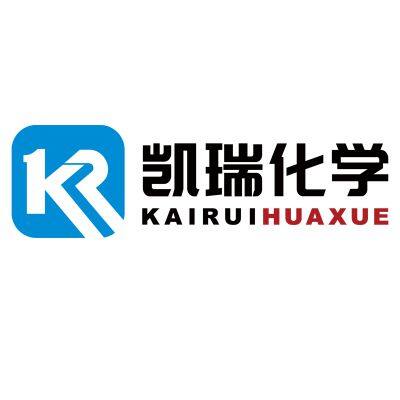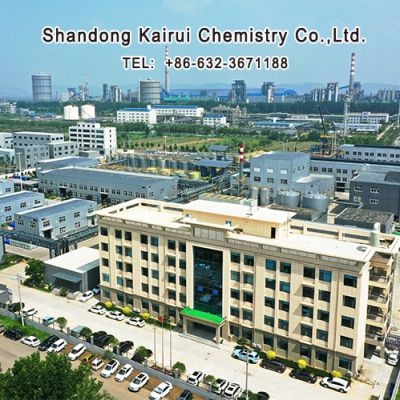Home > Products > Phosphonates Antiscalants, Corrosion Inhibitors and Chelating Agents > How are corrosion inhibitors used?
How are corrosion inhibitors used?
- QINGDAO
- T/T L/C D/P D/A Credit Card PayPal Cash Escrow Other
- 7 days
You May Like
-
Operation process of scale and corrosion inhibitor for cooling tower
-
How is the antiscalant HEDP packaged?
- Performance and Function of HEDPŌĆóNa4 GranuleÕQ?/i>
-
How does ATMPŌĆóNa5 work?
-
How biocide treatment works
-
What are surfactants?
Product Details
| Brand Name | Shandong Kairui Chemistry Co.,Ltd. | Place of Origin | China | |
| Model Number | Phosphonates Antiscalants, Corrosion Inhibitors and Chelating Agents | Type | Carbon Black | |
| Usage | Coating Auxiliary Agents, Plastic Auxiliary Agents, Surfactants, Textile Auxiliary Agents, Water Treatment Chemicals |
Product Description
Corrosion inhibitors are applied in various ways to protect metal surfaces from corrosion, which can significantly impact the longevity and efficiency of equipment and infrastructure. Here's a detailed overview of how corrosion inhibitors are used in different applications:
1. Cooling Water SystemsAddition to Make-Up Water: Corrosion inhibitors are often added to the make-up water that replenishes the cooling system. This ensures that the entire volume of circulating water is treated, protecting metal components like pipes, pumps, and heat exchangers.
Direct Injection: In some systems, inhibitors are injected directly into the circulating water through dosing pumps or other delivery systems. This method allows for precise control over the concentration of the inhibitor.
Feedwater Treatment: Inhibitors are added to the feedwater before it enters the boiler. This ensures that the water and steam inside the boiler are treated, protecting internal surfaces such as boiler tubes and drums.
Condensate Treatment: Corrosion inhibitors can be added to the condensate return lines to protect the metal surfaces in condensate systems.
Batch Addition: In some industrial processes, inhibitors are added in batches to the process water, ensuring that the entire volume receives adequate treatment.
Continuous Dosing: For continuous processes, corrosion inhibitors are dosed continuously or periodically to maintain effective protection throughout the operation.
Injection into Production Streams: Inhibitors are injected into oil and gas production streams to protect pipelines and equipment from corrosive substances present in the crude oil and natural gas.
Pipeline Coatings: Corrosion inhibitors can be incorporated into coatings applied to the exterior of pipelines to provide additional protection against environmental corrosion.
Additives in Cooling Systems: In marine engines and cooling systems, inhibitors are added to the cooling water to prevent corrosion of engine components and other metal parts.
Protective Coatings: Corrosion inhibitors can also be part of coatings applied to ship hulls and marine equipment to resist the corrosive effects of seawater.
Treatment of Distribution Water: In municipal water systems, inhibitors are added to the water supply to protect pipes and infrastructure from corrosion. This is especially important in areas with aggressive water chemistry.
Wastewater Treatment Plants: Inhibitors are used to protect equipment and piping in wastewater treatment facilities from the corrosive effects of wastewater.
Coolant Additives: In automotive radiators, corrosion inhibitors are included in the coolant to protect radiator cores, engine components, and other metal parts from rust and corrosion.
HVAC System Treatment: Corrosion inhibitors are added to the water used in HVAC systems to protect metal components such as heat exchangers and cooling coils.
Liquid Additives: Corrosion inhibitors are often available in liquid form and are mixed with water or other fluids in the system. This can be done manually or through automated dosing systems.
Powdered or Solid Forms: Some corrosion inhibitors are provided in powdered or solid forms, which are dissolved in water before use.
Coatings and Films: Inhibitors can be incorporated into protective coatings or films applied directly to metal surfaces. These coatings create a barrier that prevents direct contact between the metal and corrosive agents.
Volatile Corrosion Inhibitors (VCIs): VCIs are used in enclosed environments where they release vapors that condense on metal surfaces, providing corrosion protection.
Corrosion inhibitors are used in diverse ways depending on the application and the type of system being protected. Their effective use involves proper selection of the inhibitor, correct dosage, and appropriate application methods to ensure that metal surfaces remain protected from corrosion, thereby enhancing the longevity and performance of equipment and infrastructure.
Contact Us

- Shandong Kairui Chemistry Co., Ltd.
Product Categories
New Products
-
Can Isothiazolinones be used as antibacterial agents in daily chemicals?
-
What is OA-12
-
What is the main use of HEDPŌĆóNa4 Granule?
-
Differences between HPMA and ATMP
-
Can HPMA be used with other chemicals?
-
What are the main products of chelator?
-
Can PCA be used with other water treatment chemicals?
-
What is poly acrylic acid PAA
-
The main uses of liquid biocide
-
Where to use pipeline corrosion inhibitor
-
What is Phosphino-Carboxylic Acid (PCA)
-
What are the uses of polyacrylic acid?
Popular Searches
- food additive
- water treatment
- concrete admixture
- Concrete Additive
- rust inhibitor
- sodium gluconate
- superplasticizer
- water reducing agent
- hedp
- construction chemicals
- retarder
- scale inhibitor
- gluconic acid
- anti-rust oil
- retarder admixture
- Acid Corrosion Inhibitor
- Additive Corrosion Inhibitor
- Chemical Scale Corrosion Inhibitor
- Water Treatment Corrosion Inhibitor
- Water Treatment Scale Corrosion Inhibitor
- washing powder
- water softener
- Dispersing Agent
- concrete admixture
- organic fertilizer
- chemical additives
- sodium tripolyphosphate
- sodium gluconate
- edta 2na
- eddha fe
Recommended Products
- High-quality Dimethyl Silicone Oil PDMS 500cst
- PU Water Based Mold Release Agent
- Food & Medical Grade Liquid Silicone Rubber Mold Translucent
- Transparent Liquid Silicone Rubber For Foot Care Products
- PDMS 350cst High-quality Dimethyl Silicone Oil
- CAS 497-19-8 Sodium Carbonate Na2CO3 China Factory Manufacturer Industrial Grade Soda Ash
- Key Additive to Enhance Detergent Quality ŌĆ?Fast-Dispersing, High-Clarity HPMC Solution
- Antiseptic and disinfectant, tanning agent CAS: 111-30-8 Glutaraldehyde
- Water Repellent Hydrogen Silicone Oil for Building Material
- Hydrogen Silicone Oil PHMS - High SiH Content (1.6%) for Crosslinking
- Methyl Hydrogen Silicone Oil Used for Water Resistance
- Silicone Emulsion 60 with High Gloss for Tyre Polishing
Find Similar Products By Category
- Chemicals > Chemical Auxiliary & Catalyst > Chemical Auxiliary
Product Tags:
- Please Enter your Email Address
- Please enter the content for your inquiry.
We will find the most reliable suppliers for you according to your description.
Send Now-
 sales
Hi there! Welcome to my shop. Let me know if you have any questions.
sales
Hi there! Welcome to my shop. Let me know if you have any questions.
Your message has exceeded the limit.

- Contact supplier for lowest price
- Customized Request
- Request Sample
- Request Free Catalogs
Your message has exceeded the limit.
-
Purchase Quantity
-
*Sourcing Details
Your inquiry content must be between 10 to 5000 characters.
-
*Email
Please enter Your valid email address.
-
Mobile
We will contact you as soon as possibleÕQ?/p> Continue View



